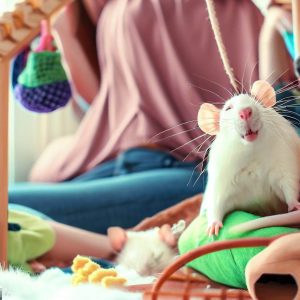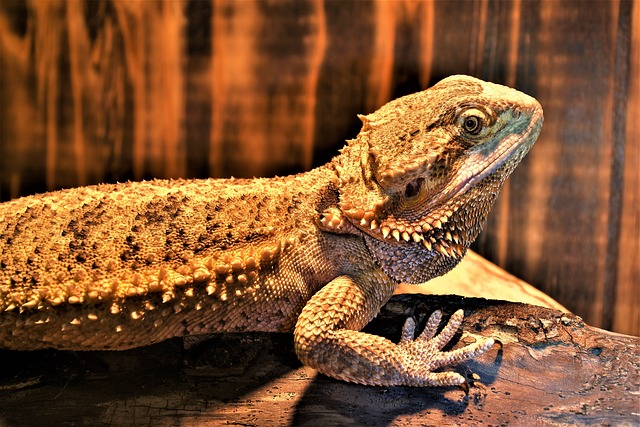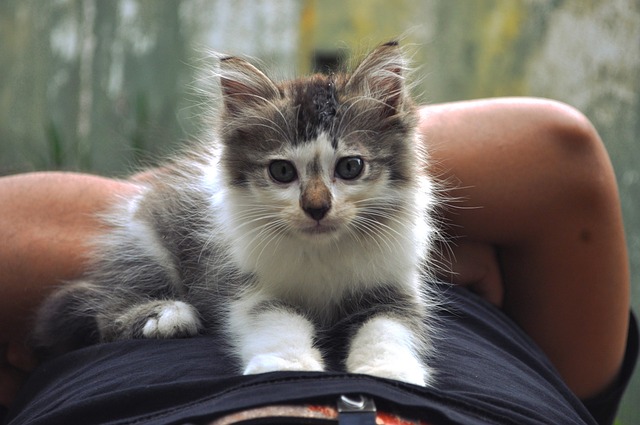Rats have long been associated with filth and disease, but this couldn’t be further from the truth when it comes to pet rats.
In fact, pet rats make excellent companions, with their intelligence and social nature making them perfect for interactive play and training.
However, like any pet, rats require proper care and attention to ensure they live a happy and healthy life.
If you’re considering getting a pet rat, but don’t know where to start, look no further than Colin Patterson’s guide, ‘Pet Rats: How to Easily Train and Care For Your Ratties…To Have a Happy Life Together.’
With over 27 years of experience as a rat breeder, Patterson’s guide provides a wealth of information on rat care, health, and training.
By following his closely-guarded secrets, pet rat owners can extend their rat’s lifespan by six months or more.
So, whether you’re a seasoned rat owner or new to the world of pet rats, this concise guide is a must-read for anyone interested in unlocking the secrets of pet rats and ensuring their ratties lead a happy life.
Key Takeaways
 Pet rats make remarkable pets with the potential to do tricks that can amaze friends and family.
Pet rats make remarkable pets with the potential to do tricks that can amaze friends and family.- The guide provides a complete system for pet rat care, including health information and tips for making the living environment more pleasant.
- The guide reveals closely-guarded pet rat care secrets, such as how to teach rats tricks and make them want to obey.
- The guide offers a 200% unconditional money-back guarantee and comes with free bonuses worth $38.
Rat Care and Health
The guide offers an extensive discussion on rat care and health, providing readers with valuable insights on how to properly maintain their pet rats.
The guide covers various topics such as cage setup, bedding materials, and minimum cage size to ensure that rats are living in a comfortable and safe environment.
Additionally, the guide offers tips on how to make cage cleaning easier and how to keep rats healthy to extend their lifespan by several months or more.
The guide also includes a step-by-step guide on how to find the right vet for pet rats. This section provides valuable information for pet owners who need to ensure that their rats receive proper medical attention.
The guide emphasizes the importance of selecting a vet who is experienced in treating rats and who can provide the necessary medical care.
Overall, the guide provides a comprehensive system for pet rat care, ensuring that pet owners have the necessary knowledge to keep their rats healthy and happy.
Training and Tricks
Enhance your pet rat’s potential through the art of training, as revealed in the comprehensive guide authored by a veteran rat breeder. Rats are highly intelligent creatures and can be trained to do a variety of tricks, including jumping through hoops, playing fetch, and even solving puzzles. Learning new skills not only keeps rats mentally stimulated but also strengthens the bond between owner and pet.
Training is a great way to provide enrichment activities for pet rats. These activities stimulate the rats’ natural instincts to forage, climb, and explore. Rats enjoy learning and performing tricks, and it provides them with physical and mental stimulation.
The guide provides step-by-step instructions for teaching rats tricks, including shaping behaviors by rewarding desired actions and using positive reinforcement techniques to encourage rats to want to obey. With the right training and patience, pet rats can become social, well-behaved, and entertaining companions.
Breeding and Loss Coping
Breeding pet rats requires careful consideration and planning, and the guide provides a comprehensive overview of the process. The guide discusses the importance of selecting suitable breeding pairs, which involves considering factors such as age, health, temperament, and genetic compatibility. It also emphasizes the need for proper nutrition and housing to ensure successful breeding and the health of the offspring. The guide covers all aspects of breeding, including caring for pregnant and nursing rats, monitoring the development of the litter, and weaning the babies.
While breeding rats can be a rewarding experience, it is important to be aware of the potential emotional toll that losing a pet can have. The guide includes a special section on coping with the loss of a pet rat, which provides valuable advice on how to grieve and honor the memory of a beloved pet. It also offers tips on how to help other rats in the same group cope with the loss of their companion.
Overall, the guide not only provides practical tips on breeding and caring for pet rats but also recognizes the emotional bond that can develop between rats and their owners.
Frequently Asked Questions
How do pet rats compare to other popular pets like dogs or cats?
When comparing pet rats to dogs or cats, it is important to note the unique qualities of pet rats.
While dogs and cats have been domesticated for thousands of years, rats have only been kept as pets for a few hundred years.
Pet rats are highly intelligent and can be trained to do tricks, much like dogs.
However, they are also smaller and require less space and resources than dogs or cats.
Additionally, pet rats are social animals and thrive in pairs or groups, making them a great choice for those looking for a social and interactive pet.
On the other hand, dogs and cats have a longer history of domestication and are often seen as more traditional pets.
They also require more space and resources than pet rats.
Ultimately, the decision between a pet rat and a dog or cat comes down to personal preference and lifestyle factors, with each option having its own pros and cons.
What are some common misconceptions about pet rats and how are they addressed in the guide?
Debunking myths about pet rats is an important aspect of the guide ‘Pet Rats: How to Easily Train and Care For Your Ratties…To Have a Happy Life Together.’
The guide addresses common misconceptions about pet rats, such as their supposed tendency to carry diseases and their perceived lack of intelligence. Rat behavior is thoroughly explained in the guide, shedding light on their social nature and ability to learn tricks.
By providing a complete system for pet rat care and revealing closely-guarded pet rat care secrets, the guide improves the quality of life for both pet rats and their owners, potentially extending the lifespan of pet rats by six months or more.
Can pet rats be trained to use a litter box?
Litter box training can be a useful technique for pet rat owners to maintain a clean living environment for their furry companions.
Litter box training tips include providing a separate litter box for each rat, placing the box in a corner of the cage, and using a litter that is safe for rats.
The benefits of litter box training for pet rats are numerous, including reducing the amount of time and effort needed for cage cleaning, preventing the spread of bacteria and odors, and providing a more comfortable living space for rats.
It is important to note that litter box training may not be successful for all rats and may require patience and consistency from the owner.
How can pet rat owners ensure their rats get enough exercise and mental stimulation?
Pet rat owners can ensure their rats get enough exercise and mental stimulation by implementing various rat exercise ideas and rat mental stimulation techniques.
Activities such as providing toys, obstacle courses, and mazes, as well as free-roaming time outside of their cage, can offer physical exercise and mental stimulation.
Some other ideas include hiding treats for them to find, teaching them new tricks, and rotating their toys to keep them engaged and interested.
Owners should also make sure their rats have access to a spacious cage with plenty of climbing structures and toys to play with.
Providing a stimulating environment for pet rats can lead to a happier and healthier life for both the rats and their owners.
Are there any specific dietary requirements for pet rats and how are they addressed in the guide?
Dietary recommendations for pet rats are a crucial aspect of their overall health and wellbeing. Pet rats have specific nutritional needs that should be met to ensure they remain healthy.
The guide ‘Pet Rats: How to Easily Train and Care For Your Ratties…To Have a Happy Life Together’ by Colin Patterson includes information on meal planning for pet rats, including the types of food that should be included in their diet and the appropriate portion sizes. Additionally, the guide provides information on healthy treats that can be given to pet rats and the frequency in which they should be given.
Overall, the guide provides comprehensive and practical advice on meeting the dietary needs of pet rats.
Pet rats can make excellent companions, but caring for them requires knowledge and expertise. Colin Patterson’s guide, ‘Pet Rats: How to Easily Train and Care For Your Ratties…To Have a Happy Life Together,’ offers valuable insights and tips for pet rat care. With over 27 years of experience as a rat breeder, Patterson shares his closely-guarded secrets for extending the lifespan of pet rats by six months or more.
From ensuring their health to teaching them tricks, this concise guide covers all aspects of pet rat care. One of the most significant advantages of Patterson’s guide is the potential to enhance the quality of life for pet rats. His insights into rat care and health can help owners prevent illnesses and ensure that their pets live a long, happy life. Additionally, his guidance on training and tricks can bring joy to both the rat and owner.
Patterson’s expertise in breeding and loss coping can also help pet owners navigate the more challenging aspects of rat ownership. Overall, Patterson’s guide is a valuable resource for anyone interested in owning a happy and healthy pet rat. With a 200% money-back guarantee, there is no risk in trying out his methods. By following his advice, pet owners can unlock the secrets of pet rats and develop a deeper relationship with their furry friends.

 Pet rats make remarkable pets with the potential to do tricks that can amaze friends and family.
Pet rats make remarkable pets with the potential to do tricks that can amaze friends and family.






